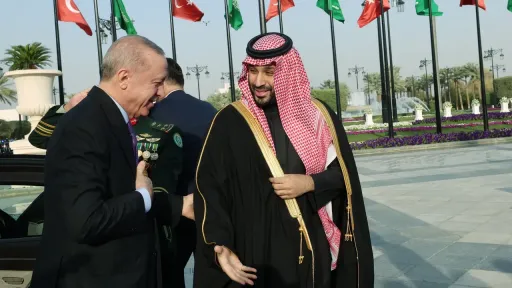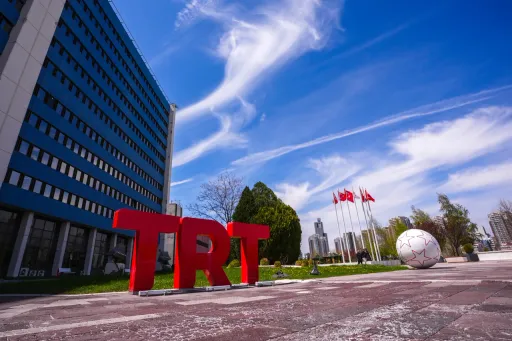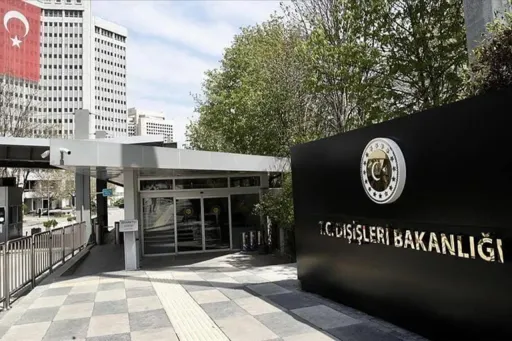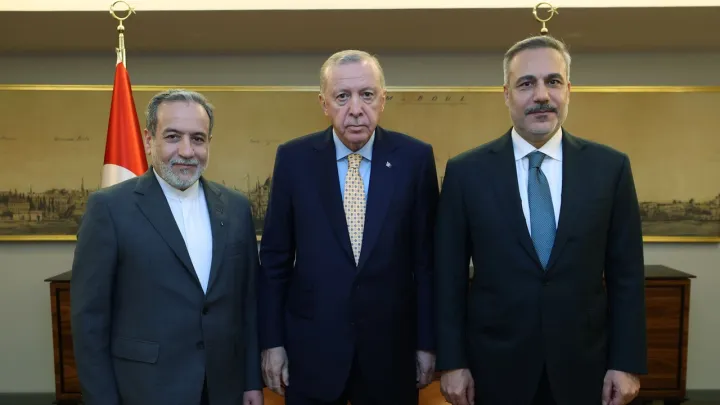Sport
Dollar
43,5427
0.05 %Euro
51,4344
0.05 %Gram Gold
6.810,7200
-1.44 %Quarter Gold
11.969,4400
-2.76 %Silver
109,4800
-10.59 %109 years ago, a beleaguered Ottoman force stunned the world by defeating a British army at Kut al-Amara in present-day Iraq. More than a military victory, it became a symbol of resistan
On April 29, 1916, in a dusty bend of the Tigris River, a weary and underestimated Ottoman army delivered one of the most astonishing defeats in British military history. After a gruelling 147-day siege at the Iraqi town of Kut al-Amara, more than 13,000 British troops—including 13 generals and 481 officers—surrendered to the Ottomans.
Now, 109 years later, Turkish scholars urge the public to remember Kut not just as a battlefield, but as a powerful expression of resistance, dignity, and faith by an empire widely assumed to be in decline.
“Kut al-Amara was a battle in which the impossible became possible,” says Professor Durmus Akalin, a historian and academician at Pamukkale University. “It was where the seemingly invincible were defeated—not by superior arms, but by perseverance and belief. It showed that the Ottoman soldier fought not only with his rifle—but with his soul,” he tells TRT World.
A world under Western control
To grasp the magnitude of Kut, one must first consider the geopolitical map of 1914. At the outbreak of World War I, 84 percent of the globe was under Western colonial occupation. Of this, the lion’s share was controlled by the British Empire, whose territorial breadth and naval dominance made it the era’s unchallenged superpower.
“We must understand the backdrop: the West, particularly Britain, had occupied most of the world,” scholar and researcher Memis Okuyucu explains to TRT World. “Modern Western prosperity owes much to the exploitation, blood, and tears drawn from the East.”
Britain’s expanding interests weren’t only political, they were industrial. Oil, or "black gold," had become essential to imperial strategy. The Ottoman Middle East, especially Iraq, emerged as a key target.
“Britain’s goal was not to ally with the Ottoman Empire, but to partition it and seize the oil-rich lands of the Middle East,” says Okuyucu. “They did not want the Ottomans as partners—they wanted them divided, disarmed, and erased.”
British forces had already occupied Basra in southern Iraq, seeking control over Iraq’s growing oil fields. From there, their march northward toward Baghdad was swift, aided by local naval advantage and the thin Ottoman defence.
The Ottoman will to resist
But the Ottomans, though strained from years of conflict, were not broken.
“We often forget that the Ottoman Empire had just endured the Balkan Wars, the Italo-Turkish War, and the catastrophic losses of the '93 Russo-Turkish War,” Akalin says. “And yet, in Canakkale - Gallipoli, and again at Kut, we saw a new spirit arise.”
Commanders like Suleyman Askerî Bey, Sakalli Nurettin Pasha, Ali İhsan Sabis Pasha, and Halil Kut Pasha led assembled forces to stop the British advance. After halting them at Selman-i Pak, 24 kilometres south of Baghdad, the Ottomans pushed the enemy south, trapping them in Kut al-Amara.
“The Turkish soldier fought with a sense of mission, not just orders. He knew he was defending something far greater than territory. He was defending honour, sovereignty, and history,” adds Okuyucu.
On December 27, 1915, the siege of Kut began. For five months, the Ottoman troops held the city in a noose, fending off every British attempt at relief—on foot, by steamboat, even by air.
"We have no need for bribes"
As starvation gripped the trapped British force, their commander, General Townshend, sought negotiation. First, he offered one million British gold pounds for safe passage. Then he doubled the amount to two. All were rejected.
“Halil Pasha made it clear: We are not here for gold. We are here for our homeland,” says Okuyucu. “This wasn’t a war for loot, it was a war for dignity.”
“It’s one of the rare moments in history when the West, in all its might, was brought to its knees not by a stronger force, but by a more determined one,” Akalin adds.
With relief efforts failing and supplies gone, the British detonated their own stockpiles of ammunition. On April 29, 1916, General Townshend surrendered. His personal sword, offered to Halil Pasha, was respectfully returned.
“That gesture wasn’t just politeness, it was the Ottoman way of saying: We are victors with honour, not vengeance,” says Akalin. “We didn’t humiliate the enemy. We showed them that even in war, there is such a thing as moral high ground.”
Faith in the trenches
Kut was not won by the Ottomans with overwhelming numbers or modern equipment, it was won with determination, endurance, and faith.
“From the highest command to the foot soldier in the trench, the Ottoman Army fought with the strength of belief,” Akalin says. “Even after enduring defeat after defeat, they stood again, not for conquest, but for survival and legacy.”
Okuyucu echoes the sentiment: “Every civilisation builds itself through the stories of its heroes. And our heroes at Kut al-Amara weren’t men of privilege—they were sons of Anatolia, Syria, and Iraq. They were the ‘unsung Mehmetcik’ whose loyalty outlasted hunger.”
It was a war that reshaped morale. For the Muslim world in particular, it showed the Ottomans were not yet finished, and that spiritual resolve still has a place in warfare, Okuyucu explains.
A legacy of spirit
Though the larger Iraq front would later collapse and Baghdad would fall to the British in 1917, the legacy of Kut lives on.
“Kut al-Amara was the final roar of an old lion,” Akalin reflects. “It was the Ottoman Empire’s last full-hearted stand, and it deserves to be remembered as one of the most courageous episodes in military history.”
“The real victory at Kut was not just strategic, it was cultural,” adds Okuyucu. “It reminded us that a nation can be tired, poor, even wounded, and still fight with the will of giants.”
For both scholars, Kut’s relevance endures.
“In a time when maps are redrawn and powers rise and fall, we must not forget what spirit can achieve,” says Akalin. “Kut al-Amara is not just a chapter of Ottoman history—it is a testament to what happens when a people refuse to kneel.”
Honour bound in name
The victory at Kut al-Amara stands as one of the last, great military triumphs of the Ottoman Empire—a moment when the so-called “sick man of Europe” defied the world’s mightiest empire with nothing but courage, conviction, and strategic brilliance.
Its commanders became part of that legacy not just in memory, but in name: Halil Pasha, in recognition of his leadership at Kut, was granted the surname “Kut” by Mustafa Kemal Ataturk following the 1934 Surname Law.
Likewise, Ali Ihsan Pasha became Ali Ihsan Sabis, honouring his pivotal role in the Battle of Sabis during the same campaign.
These names, forged in the fires of battle, serve as lasting emblems of a time when generals were not merely promoted—they were immortalised by the victories they led.
Comments
No comments Yet




















Comment